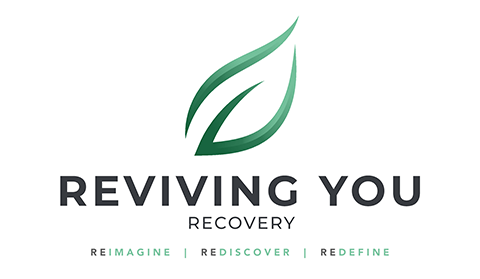The Benefits of a Smaller Treatment Group

Healing from addiction is a long and challenging road for clients. It requires that an individual feels safe, supported, and connected with others while in a treatment program. Having a smaller treatment group helps facilitate this and provides an opportunity for clients to connect with counselors and other clients as they move through the healing process. At Reviving You Recovery, treatment groups are small. Treatment for addiction is focused on each individual’s needs, and this small group setting allows for a deep layer of understanding, support, and care that is not possible with a larger treatment group.
Reviving You Recovery: Treatment Group Set Up
Treatment for addiction at Reviving You Recovery is focused on giving each client the tools and connection to truly make changes in their lives. One of the primary focuses is helping each client to build a connection with others. Connection helps clients to both get sober and stay sober. Therefore, treatment groups are set up with this in mind.
At Reviving You Recovery, treatment groups are capped at six people. Therefore, six clients go through the treatment process together. As a result, clients get individualized care, build strong relationships, and move into recovery with a strong layer of support that helps them to stay sober and have connections in their lives that bring happiness and fulfillment.
Individualized Care With a Small Treatment Group
In a treatment group, there is a variety of addiction challenges. Each of these requires a certain type and style of treatment that is well-suited for a client to heal. It is important that each person gets their treatment. Fortunately, due to the small treatment group size, clients are more likely to get individualized care, and staff can truly focus on the progression and healing of each client. Individualized care takes each person’s unique needs into consideration. For example, many individuals who struggle with addiction have a history of trauma. These individual clients need to reprocess their trauma to move forward and heal from addiction. In these cases, therapeutic modalities like eye movement desensitization and reprocessing (EMDR) are often helpful. As a result, a client’s symptoms related to trauma decrease, and they are more likely to recover from substance abuse and addiction.
However, the process of identifying the specific treatment that each client needs takes time. The small treatment group method at Reviving You Recovery helps staff to do so. From the moment a client enters the door, they are seen and noticed. At each step along the process, clients are treated for their individual needs by adjusting their treatment plan to suit where they are at. This is again facilitated by the small treatment group.
Get Your Questions Answered Now
Building Strong Relationships and Bonds
Creating positive relationships is often difficult for an individual who is struggling with addiction. Clients coming into treatment for addiction commonly feel isolated and alone. However, in treatment, clients have an opportunity to build healthy and strong bonds with others. These peer relationships have been shown to have a significant impact. They help clients on the path to recovery and provide support that helps individuals to stay sober long-term.
However, building strong relationships is a challenge. In order for clients to build these relationships, they need to feel comfortable being open in a group setting. Additionally, they need to feel safe and connected, which helps them to improve their listening skills, empathize, and get to know their peers. Having a small treatment group helps this. With a small treatment group, clients get to know each other. Through addiction treatment, they form bonds and attachments with peers that can lead to maintaining these positive relationships throughout recovery.

Creating Strong Layers of Support in Recovery
Having support and connection is vital for an individual to heal and stay sober. Strong lays of support are necessary to give a person the motivation and care they need to get through challenging moments in the recovery process. Social support is an important part of this. Getting social support can come from a variety of places in a person’s life. Clients loved ones often play a role in the support network. However, creating lasting support takes social skills. Individuals need to build the skills to connect with others and maintain healthy bonds.
Having a small treatment group can help. With a small treatment group, clients get enough practice in a social setting. However, they also have an opportunity to practice maintaining these relationships. Unlike a large treatment group where they can just move on to another social setting, clients have to practice getting through tough conversations, forgiving themselves and others, and moving forward with an even stronger relationship. With a small treatment group, clients truly build skills that are necessary for creating strong social support in their lives.
Treatment for addiction at Reviving You Recovery is completed with a max of six people in each treatment group. This smaller treatment group allows staff to really focus on individualized care and allows the clients to bond and connect as another layer of support during their recovery. At Reviving You Recovery, we believe that connection is the centerpiece in healing from addiction. Therefore, we focus on providing our clients with the skills to connect and the opportunities to practice building strong and healthy relationships. If you are interested in learning more about how we help our clients connect with others through a small treatment group, call us today at (951) 723-7598.
We Accept Most Insurances
We are in network with:









We know insurance coverage can be a source of uncertainty for people. We make sure you have all the information necessary. The great news is health insurance can potentially cover the total treatment costs. If you don't have insurance, we offer cash payment options for our treatment programs and are committed to working with clients regardless of financial situations.
